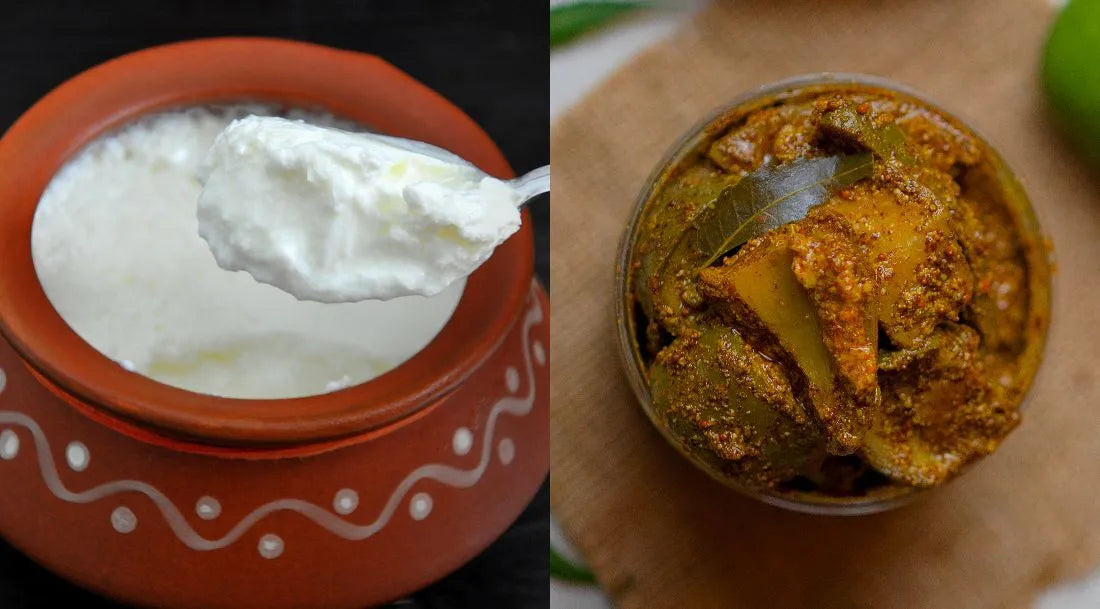
There is a common belief that eating curd and pickle together can be harmful for digestion or may cause acidity. This food combination is often labeled as a myth that should be avoided. But is there any truth to these claims or is it perfectly fine to enjoy curd and pickles together? As India's leading online pickle sellers, our experts at Farmdidi decided to get to the bottom of this debate and separate the food facts from fiction.
The Origin of the Pickle and Curd Myth
Many people advise against eating curd and pickles together because they believe combining the two can lead to poor digestion. Specifically, there is a notion that the dairy from the curd and the sourness from pickle brine don't make a good digestive match.
However, there is no scientific evidence to back up this belief. It seems to be an unfounded food myth similar to the idea that you shouldn't swim after eating. The origins likely come from the fact that individually, both curd and pickles have the potential to aggravate digestion issues if consumed in excess. But together in moderation, they pose no harm to most people.
Benefits of Eating Pickle and Curd
Not only is the curd and pickle combination safe for most people, but eating them together can actually have digestive and nutritional benefits. Some of these benefits include:
- Both curd and pickles contain probiotics, the good bacteria that promote healthy digestion and gut balance. Fermented foods like pickles and curd contain several live strains of these bacteria that are essential for intestinal health.
- Curd provides an excellent source of protein in the diet, while pickles supply key vitamins and dietary fiber. Eaten together, they make a nutritionally balanced snack or meal accompaniment.
- The hydrating properties in curd coupled with the electrolytes from pickle brine can actually aid digestion rather than hinder it. This combination is unlikely to cause diarrhea, bloating or acidity issues.
Who Should Avoid the Curd and Pickle Combo?
While curd and pickles pose no risks for most people, some individuals may want to exercise caution:
- Those with digestive disorders like irritable bowel syndrome (IBS), inflammatory bowel disease (IBD) or acid reflux disease may want to avoid this combination, especially during symptom flares. The probiotics could provide benefits but they may aggravate symptoms like diarrhea or heartburn in some cases.
- Pregnant women are also often advised to avoid pickles and curd together. However, current guidelines simply recommend moderation of both foods rather than avoidance.
- Unless you have specific intestinal issues or are pregnant, there is no scientific evidence to support avoiding the curd and pickle duo. At the same time, as with any food, moderation is key. Consuming them excessively could risk temporary stomach upset.
Conclusion: Savor Pickles with Curd Guilt-Free
Based on extensive research, the idea that pickles and curd create poor digestive synergy is largely unfounded.
So savor our tasty preservative-free pickles to your heart's content with your curd without worry or guilt. Unless you have specific medical reasons to limit either food, don't let this common myth stop you from experiencing this beloved flavor pairing that Indian meals are known for.
Dip your spoon from your curd bowl right into those Farmdidi pickle jars - so crispy and tangy! You gotta try them today and taste why people rave about these real-deal homemade pickles. Visit the Farmdidi website now and get yourself some jars. Your curd is waiting!

